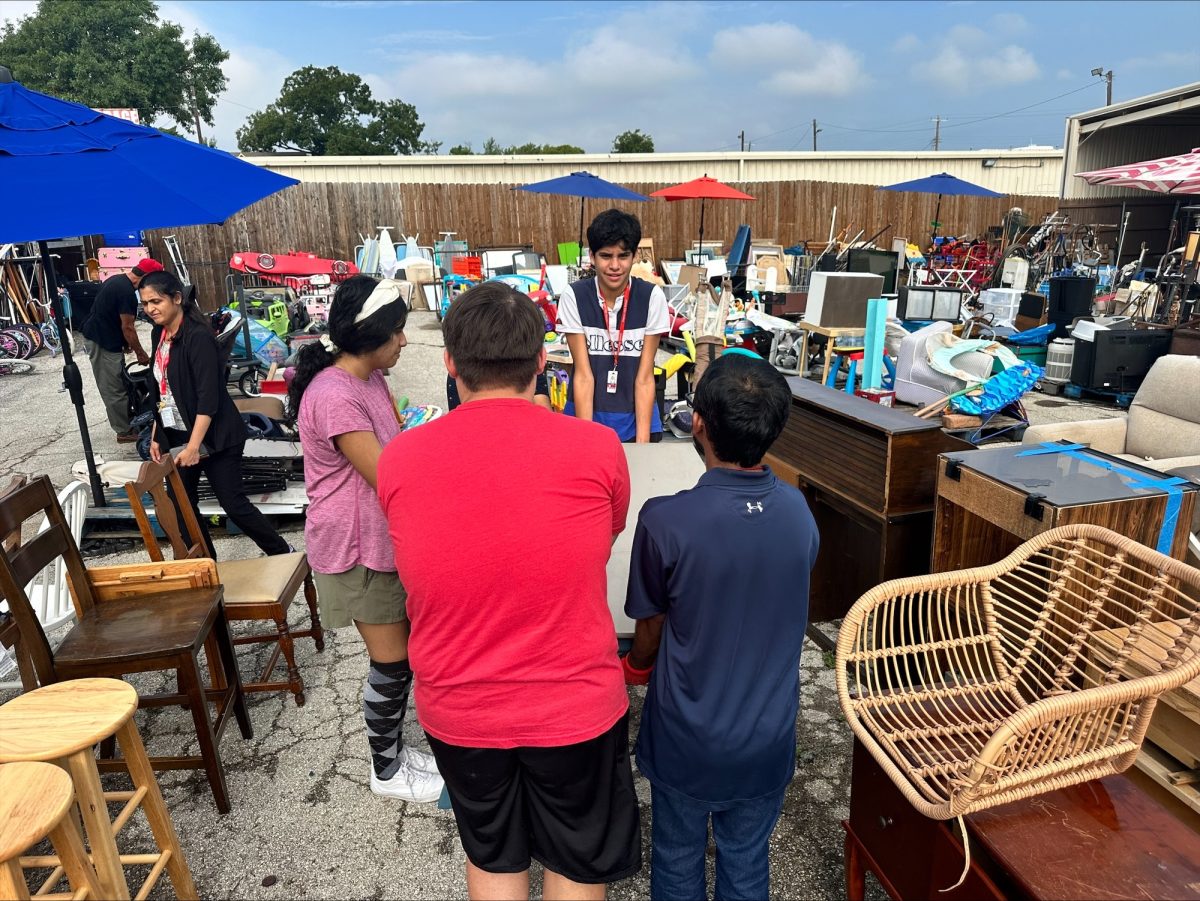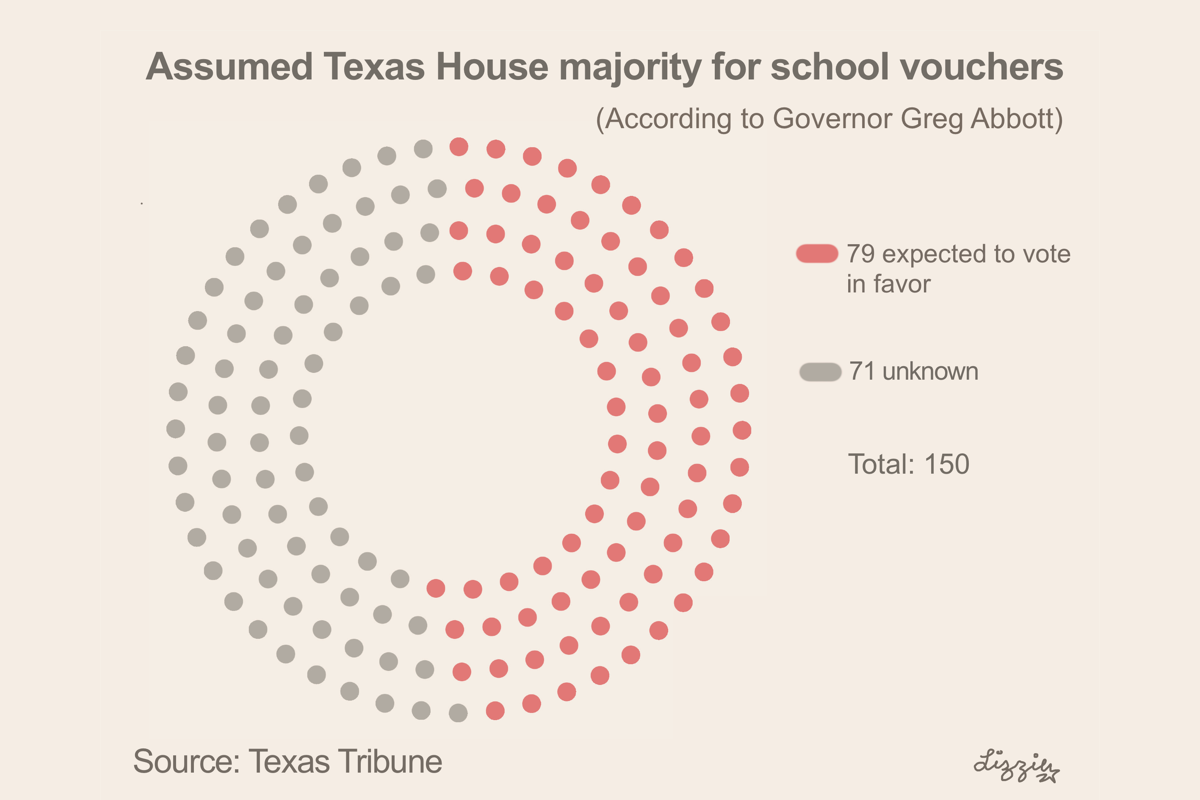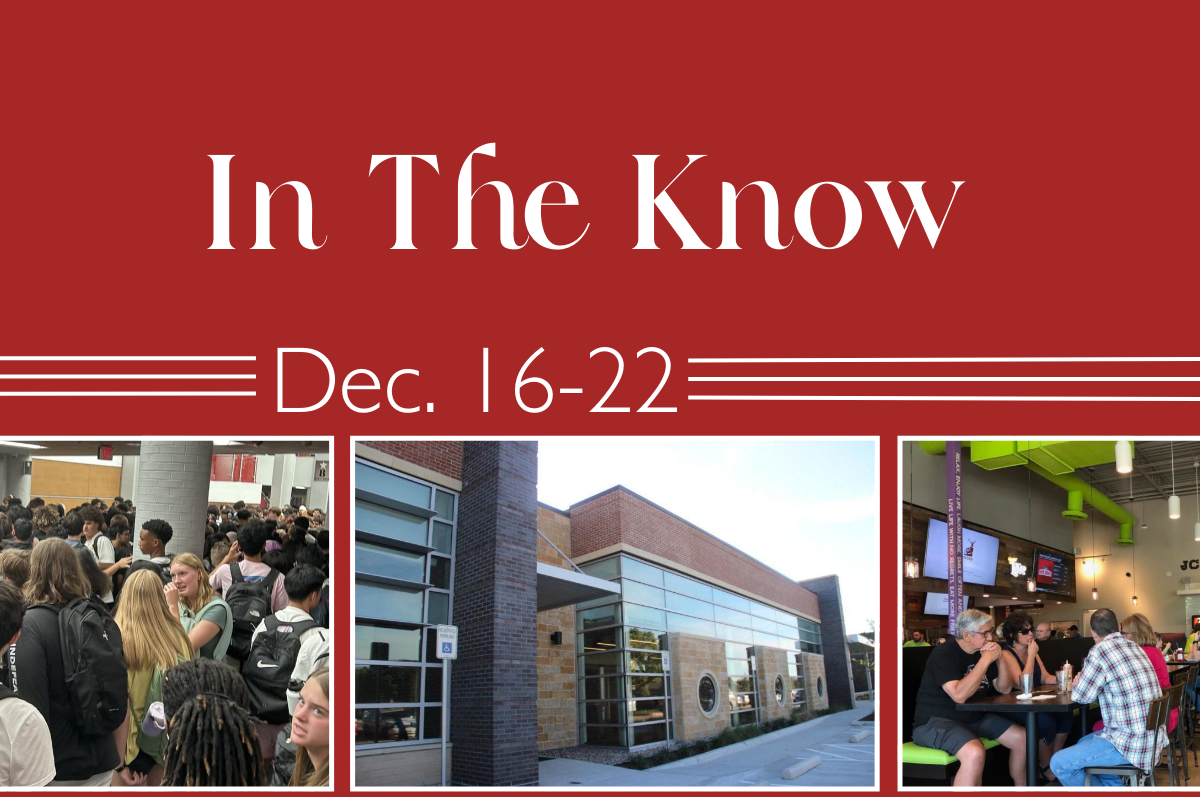An employee scans a customer’s items while maintaining small talk, utilizing social and technical skills learned through Coppell ISD’s Skills Training and Employment Program (STEP). This may seem like a common phenomenon, but for these employees, this is a massive milestone.
For these Coppell High School graduates, they are supported by STEP, engaging in real world working environments.
STEP is a work and community based learning program designed to guarantee employment for graduates ages 18 to 22 who have limited options after high school.
After graduating, the young adults are assisted by paraprofessionals and teachers who aid them in either securing a paid job or volunteer opportunity at various stores such as Walgreens and Goodwill. The adults continue STEP until they are able to work independently without assistance.
“I think it’s very beneficial to offer opportunities to students who aren’t college bound or aren’t ready to go straight into the workforce,” head of special education Laura Hynson said. “This is a good bridge for them to still get support from the school and CISD to get ready for that.”
The program helps the young adults facilitate practical living skills they can carry with them throughout their lives.
“We love the program and we lead it so that our students gain more independence,” STEP case manager Amy Kryzak said. “We want them to be as independent as possible and [the program] is one of the most beneficial things that they’ve probably done because they receive practical and appropriate skills for their life moving forward.”
Parents of these adults also praise the program for developing new skills and opportunities for their child.
“The program has taught my daughter a lot of important adult life skills such as navigating the workplace and learning how to communicate in a professional environment,” instructional aide Hemlata Bhatt said. “She now offers help to others in her workplace without explicitly being asked and takes a lot of pride in what she does.”
Gaining experience in the workfield, Bhatt’s daughter found a focus in childcare.
“She has worked a bit in childcare now, so she has gained some confidence in taking care of toddlers and offering them guidance,” Bhatt said.
Paraprofessionals and teachers aim to alleviate obstacles the students may face.
“One of the things they struggle with is being flexible,” STEP case manager Dr. Jonathan Weber said. “[The students] tend to be very rigid towards flexibility but in a lot of ways we do it intentionally to push them in the same way that a teacher may push you in a traditional classroom to be your best self.”
Those above the age of 22 who still require additional assistance are able to live in a facility among other neurodivergent adults.
The program promotes the importance of supporting neurodivergent adults both occupationally and socially.
“The STEP program benefits our population of historically and currently underserved [neurodivergent adults] in a lot of areas,” Weber said. “This is an opportunity for them to develop skills that are different from what you would see in a traditional classroom, whether those are academic or social skills.”
Teachers and professionals notice behavior and personality changes in STEP participants.
“Some tend to be a little more reserved and kind of want to keep to themselves, but I think one of the things that we do extremely well is helping them become comfortable with who they are,” Weber said. “We love them and we care for them regardless of whatever their disability may be.”
Follow @katiegpark and @CHSCampusNews on X.










